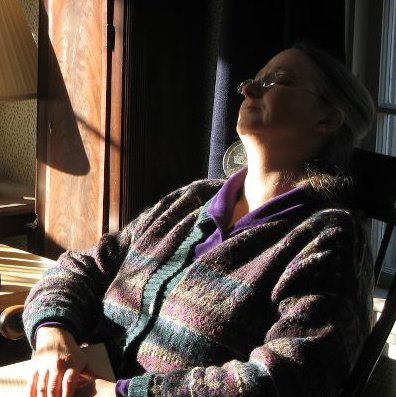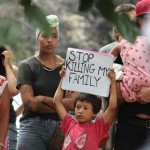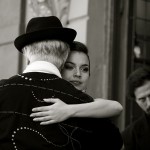I was talking the other day over dinner with friends of mine—some of them teachers and some of them high school dropouts who’ve gone on to become very successful in life—about how to improve public education in this country. Can it be fixed? Should it be fixed? Is public education even a good thing? And it got me thinking about what my assumptions are, not just about education but about human society and human nature in general. And when I look at my assumptions—the ones I’ve never consciously learned or decided on, that seem to live deep down in the brainstem—I’m a little surprised by what I find.
It is possible to get it right, is probably the most powerful of them. Hardwired somewhere deep inside me is a vision of human existence as growth towards perfection. It’s a story that runs something like this: Life came from chaos and dirt, evolved intelligence, developed tribal cultures and then urban cultures and then civilizations, fought wars, wrote treaties and envisioned a goal of lasting peace with universal human rights, prosperity, and personal fulfillment for all.
There are some places where it doesn’t quite work.
“World peace,” for starters, is a concept that seems to arise only in empires that are living comfortably on the wealth they have already stripped from their colonies. Pax Romana is not the kind of peace that George Fox envisioned.
“Individual human rights” is also kind of a dicey concept, as it ignores individuals who find their meaning in cohesive communities. If we eradicate Native American culture, for instance, or Amish culture, but give them all the right to vote and to attend public schools, is that a good thing? How many cultures are we trampling because we don’t even see them? What makes one group of people a “traditional culture” and another just a backward or oppressive system?
Which begs the question: Should we (or anyone) ever have the kind of power that makes that kind of question even come up?
A big, pluralistic society with a rich diversity of cultures sounds like a good, liberal ideal but the only way you get there seems to be through imperialist conquest. America has diversity because Europeans stole land from the Native Americans, imported African slaves and Chinese railway workers, and bought, bartered, or stole conquests from each other. America is diverse the way Iraq is diverse—Sunnis and Shiites and Kurds thrown together by an arbitrary political boundary like hamsters in a cage to kill each other when, in nature, they would rather just live peacefully and separately at opposite ends of a meadow.
But there’s my assumption again—it’s possible to get it right. To get all of it right, in one fell swoop. The world would be just fine if we didn’t have global superpowers carving up the third world like so much meat pie and engulfing more territory than can possibly be governed as one people.
It might even be true. Imagine a world that is an open meadow dotted with independent little city-states, each no bigger than fifth-century B.C.E. Athens, with a loose network of trade and maybe with occasional skirmishes over a particularly good patch of farmland, but largely devoid of wars and the causes of wars. A bit provincial, perhaps, and maybe even a little dull, but also peaceful and idyllic. Can’t you just see it as an R. Crumb poster?
But there is simply no path from here to there.
Here is where we have to act. Here is where we have to do what good we can. And peace, whatever that word means, has to be something we live out here, in a world of six billion people where America has hegemony over the Western hemisphere and where Islamic extremists are gaining increasing sway among young people without hope and where North Korea is developing nuclear missiles.
And here, in the middle of the American empire, funded by the wealth of plunder and pledging allegiance to the flag, I teach public school.
Because…?
The bottom line, really, is that I find it meaningful because I find my relationships with the kids meaningful. Society may be broken beyond repair, but individual students—almost all of the seventy-five or so of them that I see every day—are (I think) better off and are better people for having known me and learned from me.
I don’t know how to fix public education, or if public education can be fixed at all, or even if it should be. I can think of half a dozen radical solutions that would completely revision what public education is all about (none of which are remotely feasible politically) but at bottom, I don’t know what’s best for society. I do have some sense of what is best, at least today and this week, for most of the kids that come in and sit down in front of me.
Which means, I guess, that I’ve found another of my underlying assumptions: Individual people and individual relationships are what matter most, more than societal or global solutions.
I have to sit with that one a while and see if I really believe it.











